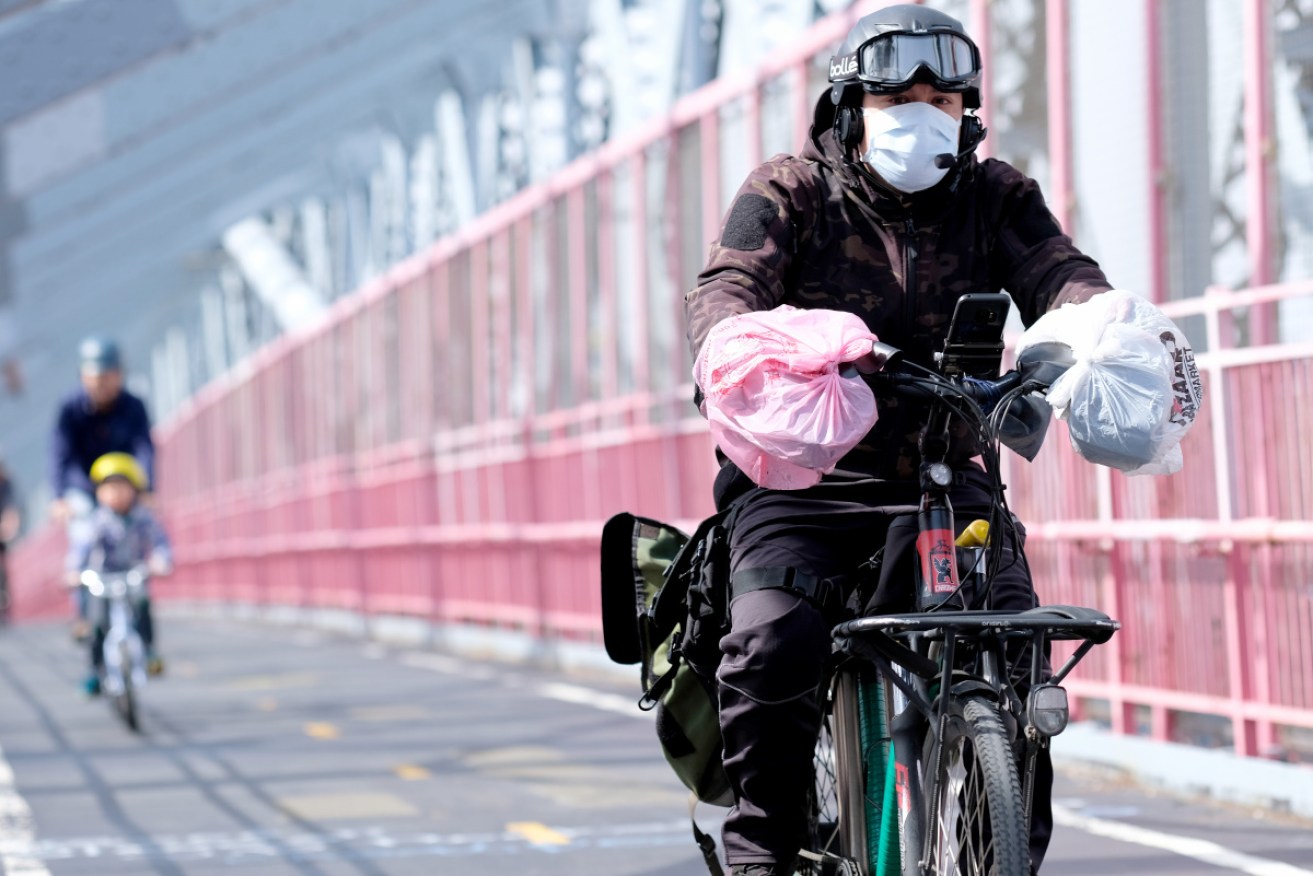WHO launches massive trial of four promising antiviral drugs


A massive global effort is underway to produce effective antiviral drugs to fight the coronavirus and allow people to breathe easier. Photo: Getty
You may have heard this week that new drugs under development are showing real promise in helping patients recover more quickly from COVID-19. It’s true.
Some drugs are being fast-tracked into clinical trials at multiple sites around the world, and China has already sanctioned the widespread use of a repurposed flu drug that Beijing says is “clearly effective”.
The World Health Organisation (WHO) on Wednesday has so far enlisted 10 countries in a trial that will more rigorously test four of the more promising drugs on a large scale, largely with a focus to establish which, if any, can reliable reduce mortality.
One of these drugs, an antiviral called remdesivir, reportedly brought a woman sick with COVID-19 back from near-death.
We need this good news. But we also need to keep in mind that promising research can hit a brick wall, as in outright fail.
Where we can take heart is in the astonishing amount of work being done around the world, and the fast pace of progress.
Here are the main developments
The US Federal Drug Administration has approved two drugs that have not yet completed clinical trials. The drugs, the antiviral remdesivir, and a generic anti-malaria pill, chloroquine (developed more than 70 years ago) have been approved for “compassionate use” only. This means they will be restricted to people who appear to be dying from COVID-19. More wider approval will depend on large-scale clinical trials.
Big hopes are riding on remdesivir, an experimental antiviral from Gilead Sciences that has shown some effectiveness against the coronaviruses that cause SARS and MERS. Remdesivir appears to have brought a critically-ill woman back from the brink of dying. She is now doing well, according to a report in Science.
Several randomised, placebo-controlled trials of remdesivir as a remedy for COVID-19 were already underway in China and the United States. This week the US National Institute of Allergy and Infectious Diseases is backing an expanded to be conducted at up to 50 sites globally.
Remdesivir cripples an enzyme called RNA polymerase that is used by many viruses to copy themselves; it does not specifically target SARS-CoV-2, the virus that causes COVID-19.
Chloroquine, as explained here, interferes with the coronavirus’s ability to replicate. The drug enters compartments called endosomes within the cell membrane. Many viruses, including SARS-CoV, acidify endosomes in order to breach the cell membrane, release their genetic material and begin replication; chloroquine blocks this critical step
As The New Daily reported this week, China became the first country to promote an antiviral drug for widespread use against COVID-19. The drug, favipiravir, sold under the brand name Avigan, was developed by Fujifilm Toyama Chemical in 2014 as a flu medicine.

A Japanese company developed the drug favipiravir in 2014 to combat seasonal flu. Beijing has released it for widespread use as a treatment for COVID-19. Photo: Getty
About 340 patients in Wuhan and Shenzen received the drug as part of clinical trials. The New Daily has not seen the trial’s data or a journal paper, and the broader view is that the results are promising, but the trials were too small to warrant Beijing’s decision.
Zhang Xinmin, director of the Chinese government’s National Center for Biotechnology Development told a news conference: “It is very safe and clearly effective.” Some of the results are tabled below: those who took the drug against those in the control group who didn’t take the drug.
At a press conference in Geneva on Friday, the WHO said it was working with scientists on at least 20 different coronavirus vaccines. Some were already in clinical trials, in record time.
“The acceleration of this process is really, truly dramatic in terms of what we’re able to do, building on work that started with SARS, that started with MERS, and now is being used for COVID-19,” Dr. Maria Van Kerkhove, the technical lead for WHO’s emergencies program. The WHO has said that a successful vaccine would have to be shared with everybody, not just people who can afford to pay for it.
On Friday, WHO launched a messaging app designed to bring COVID-19 facts and updates to billions of people via WhatsApp.
According to a report in Nature, China has more than 80 running or pending clinical trials on potential treatments for COVID-19. The WHO is working with Chinese scientists to set strict protocols for these clinical tests, in effect so the work can be more quickly validated.
Soumya Swaminathan, chief scientist at WHO, says that its teams “have been taking stock of China’s many trials, as well as drawing up a plan for a clinical-trial protocol that could simultaneously be run by clinicians around the world,” says Nature.
“If China’s trials, which include as many as 600 people each, are not designed with strict standards for study parameters, such as control groups, randomisation and the measures of clinical outcomes, the efforts will be in vain.”









